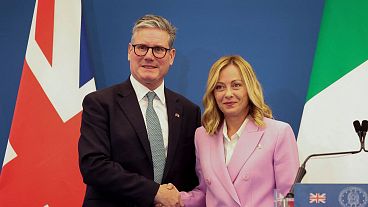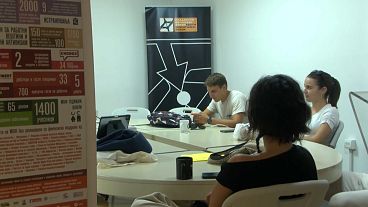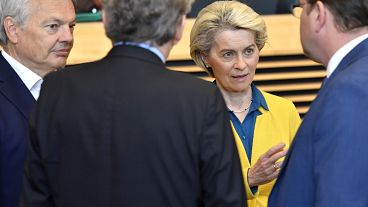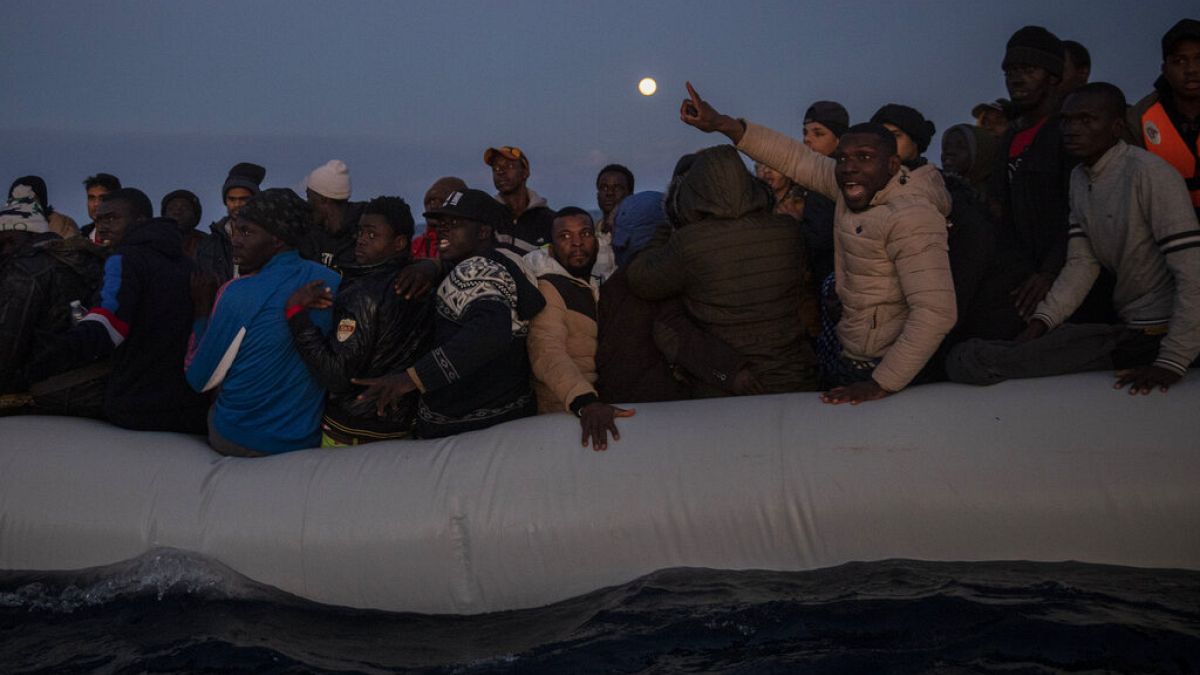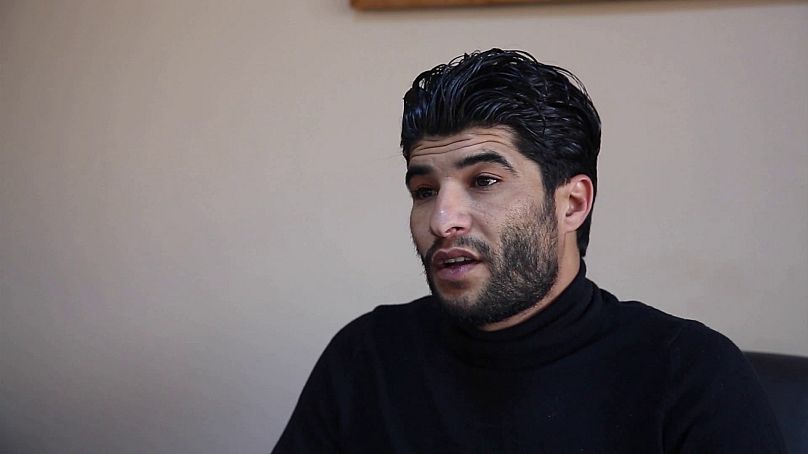Abdel-Rahman Milad, a former leader of Libya's coastguard who was accused by the UN of running a trafficking organisation, was shot dead in Tripoli.
Libya’s chief prosecutor has ordered the detention of a militia leader and one of his aides in relation to the killing of one of the country's most notorious human traffickers.
Militia leader Mohamed Bahroun and one of his associates handed themselves over after allegations surfaced about their role in last week’s killing of Abdel-Rahman Milad in the country's capital of Tripoli.
Milad, one of the country's most-wanted traffickers, was sanctioned by the United Nations Security Council and previously imprisoned in Libya on trafficking charges.
He was shot whilst sitting in a chauffeur-driven a car in the Libyan capital of Tripoli.
Also known as "Bija", Milad commanded a coast guard unit in the western town of Zawiya and was accused by a 2017 United Nations security report of being involved in purposefully "sinking migrant boats using firearms".
Milad was arrested in 2019 after an Italian newspaper located him at a meeting in Sicily attended by Italian officials and a delegation from the Libyan coastguard organised to discuss controlling migration from Italy to Libya.
The meeting was organised in light of a controversial deal signed in 2017 between the Italian interior minister and Libya's then-government which promised more co-operation between the Libyan coastguard and Italian agencies.
The deal entailed Italy providing Libya with funds and equipment, including four new patrol boats, to intercept migrant boats at sea and return them to Libya.
Two Italian journalists, Nancy Porsia and Nello Scavo, a reporter for Avvenire, commented that it was unusual that Italian intelligence did not realise Milad was present at the meeting, fuelling speculation that Italian authorities were aware of the presence of human traffickers in the Libyan coastguard.
Scavo told British media that Milad had frequently threatened to expose secrets between human traffickers and the Libyan authorities.
Milad was arrested in 2020 then released in 2021 and promoted from a captain to a major. He consistently denied any links to human trafficking, and moved freely in western Libya for two years following his arrest.
Peter Stano, a spokesman for the European Union, said the EU would continue to encourage Libyan authorities to bring to justice those responsible for human trafficking, including Milad, who was also sanctioned by the EU in 2018.
The EU has partnered with Libya's coast guard to try and halt crossings, however rights groups say that this strategy often leaves migrants at the mercy of armed groups or confined in migrant detention centres rife with rights abuses.
The head of the Sadeq Institute, a Libya based think tank, posted his analysis on X that Milad had "turned rescue into ransom."
Anas El Gomati alleged that "the most vulnerable intercepted on the Mediterranean were returned to Libya to be extorted in detention centres. EU funds meant to save lives instead lined the pockets and enabled those endangering them. His death isn’t justice, it’s another violent chapter in Libya’s dysfunctional story."
El Gomati's allegation is that some of the migrants who are returned by the Libyan coastguards and then placed in detention camps have to pay money to secure their release.
Libya is major conduit for migration for people from Africa and the Middle East hoping to reach Europe by crossing the Mediterranean Sea, often on poorly constructed boats through dangerous waters.
On Saturday, the Libyan coast guard intercepted a boat full of 64 migrants bound for Europe, just days after a boat carrying 32 capsized off Libya's eastern town of Tobruk leaving 22 missing.

